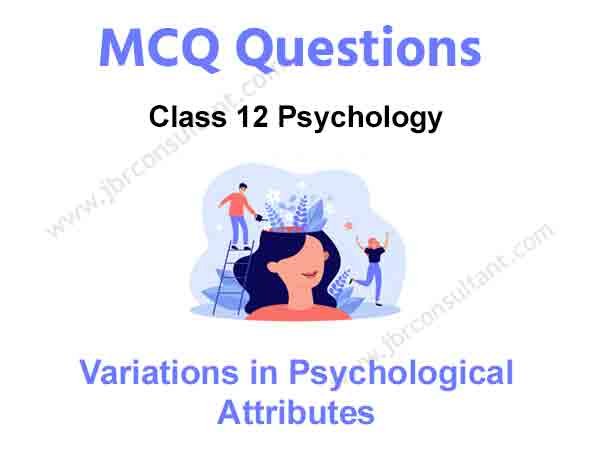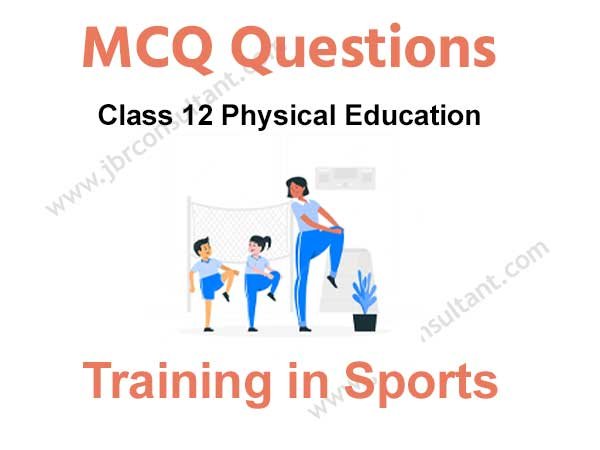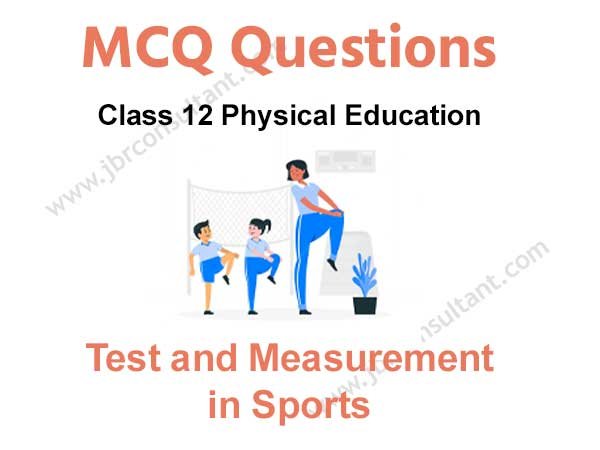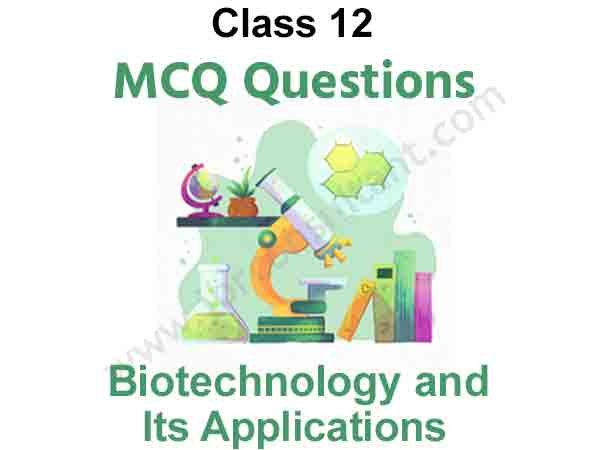Class 12 Variations in Psychological Attributes MCQ is one of the best strategies to prepare for the CBSE Class 12 Board exam. If you want to complete a grasp concept or work on one’s score, there is no method except constant practice. Students can improve their speed and accuracy by doing more MCQ on Variations in Psychological Attributes class 12, which will help them all through their board test.
Class 12 Variations in Psychological Attributes MCQ Questions with Answer
Psychology Class 12 MCQ with answers are given here to chapter 1 Variations in Psychological Attributes. These MCQs are based on the latest CBSE board syllabus and relate to the latest Class 12 Psychology syllabus. By Solving these Class 12 MCQ, you will be able to analyze all of the concepts quickly in the chapter and get ready for the Class 12 Annual exam.
Learn Variations in Psychological Attributes Class 12 MCQ with answers pdf free download according to the latest CBSE and NCERT syllabus. Students should prepare for the examination by solving CBSE Class 12 Psychology Variations in Psychological Attributes MCQ with answers given below.
Question 1. “Intelligence is the global capacity of an individual to think rationally, act purposefully and deal effectively with the environment”. This definition was proposed by:
(a) Wechsler
(b) Binet
(c) Gardner
(d) Sternberg
Answer
A
Question 2. Entrepreneurial Competence refers to:
(a) Respect for social order
(b) Self-exposure
(c) Discrimination
(d) Commitment
Answer
D
Question 3. Emotional competence refers to
(a) Self-monitoring of emotions
(b) Self-competence to handle behaviour
(c) Discrimination of behaviour
(d) Persistence in behaviour
Answer
A
Question 4. Two-factor theory was proposed by:
(a) Charles Spearman
(b) Arthur Jensen
(c) Howard Gardner
(d) J.P. Guilford
Answer
A
Question 5. The concept of ‘Emotional Intelligence’ has been proposed by:
(a) Morgan and Murray
(b) Binet and Simon
(c) Salovey and Mayer
(d) Guilford and Thurstone
Answer
C
Question 6. Match the two lists and choose the correct match from the given options:
List A List B
(i) One-factor theory (a) Thurstone
(ii) Two-factor theory (b) Binet
(iii) Structure of Intellect Model (c) Spearman
(iv) Theory of Primary Mental Abilities (d) Guilford
Options
A. (i)-(d), (ii)-(a), (iii)-(c), (iv)-(b)
B. (i)-(c), (ii)-(d), (iii)-(b), (iv)-(a)
C. (i)-(a), (ii)-(c), (iii)-(d), (iv)-(b)
D. (i)-(b), (ii)-(c), (iii)-(d), (iv)-(a)
Answer
D
Question 7. The Theory of Multiple Intelligences was proposed by:
(a) Charles Spearman
(b) Arthur Jensen
(c) Howard Gardner
(d) J.P. Guilford
Answer
C
Question 8. _____________ proposed hierarchical model of intelligence consisting of abilities operating at two levels.
(a) Binet
(b) Wechsler
(c) Jensen
(d) Spearman
Answer
C
Question 9. The Structure-of-Intellect Model was proposed by:
(a) Charles Spearman
(b) Arthur Jensen
(c) Howard Gardner
(d) J.P. Guilford
Answer
D
Question 10. Ability to use past experiences creatively to solve novel problems is known as:
(a) Musical intelligence
(b) Interpersonal intelligence
(c) Experiential intelligence
(d) Contextual intelligence
Answer
C
Question 11. If a person has a skill of understanding the motives, feelings and behaviours of other people, he/she is said to have
(a) Interpersonal intelligence
(b) Intrapersonal intelligence
(c) Linguistic intelligence
(d) Social intelligence
Answer
A
Question 12. A student with high aptitude in verbal reasoning and strong interest is reading is more likely to succeed as a ____________.
(a) Journalist
(b) Engineer
(c) Athlete
(d) Agriculturalist
Answer
A
Question 13. ‘Selection of environment’ to accomplish one’s goals and those of one’s society and culture is an intelligent act. It is given by:
(a) Sternberg
(b) J. P. Guilford
(c) Charles Spearmanq
(d) Louis Thurstone
Answer
A
Question 14. ___________ intellectually disabled people have IQ ranging from 25 to 39.
(a) Mild
(b) Moderate
(c) Severe
(d) Profound
Answer
C
Question 15. Which factor influences more in aptitude formation?
(a) Caste
(b) Age
(c) Intelligence
(d) Family
Answer
C
Question 16. The ratio which states the relationship between mental age and the chronological age is called the:
(a) Developmental Quotient (DQ)
(b) Intelligence Quotient (IQ)
(c) Performance Quotient (PQ)
(d) None of the above
Answer
B
Question 17. The range of average IQ is//69:.
(a) 110–120
(b) 90–110
(c) 105–115
(d) 120–140
Answer
B
Question 18. Howard Gardner’s Theory of Intelligence is known as:
(a) Theory of Primary Mental Abilities
(b) Triarchic Theory
(c) Theory of Multiple Intelligences
(d) Two-factor Theory
Answer
C
Question 19. An IQ below __________ is generally considered intellectually disabled
(a) 100
(b) 70
(c) 120
(d) 110
Answer
B
Whoever needs to take the CBSE Class 12 Board Exam should look at this MCQ. To the Students who will show up in CBSE Class 12 Psychology Board Exams, It is suggested to practice more and more questions. Aside from the sample paper you more likely had solved. These Variations in Psychological Attributes class 12 MCQ are ready by the subject specialists themselves.
Fill in the Blanks
Question 1. The notion of contextual intelligence implies that intelligence is a product of______________.
Answer
Culture
Question 2. _________ is a method in which a person provides factual information about herself/ himself.
Answer
Self-Report
Question 3. The _________ approach considers intelligence as an aggregate of abilities.
Answer
Psychometric
Question 4. General feature of most of the creative tests is that they are _____________.
Answer
Open-ended
Question 5. Enduring beliefs about the ideal mode of behaviour is called _________.
Answer
Values
Question 6. The concept of IQ was proposed by _____________.
Answer
William Stern
Question 7. Individual’s underlying potential for acquiring skills is known as _____________.
Answer
Aptitude
Question 8. ____________ is an individual’s preference for engaging in one or more specific activities relative to others.
Answer
Interest
Question 9. The speed with which one accomplishes a task refers to one’s intellectual capacity.(True/False)
Answer
True

You can easily get good marks If you study with the help of Variations in Psychological Attributes Class 12 MCQ. We trust that information provided is useful for you. NCERT MCQ Questions for Class 12 Variations in Psychological Attributes PDF Free Download would without a doubt create positive results.
We hope the information shared above in regards to MCQ on Variations in Psychological Attributes Class 12 with Answers has been helpful to you. if you have any questions regarding CBSE Class 12 Psychology Solutions MCQs Pdf, write a comment below and we will get back to you as soon as possible.
Frequently Asked Question (FAQs)
How many MCQ questions are there in CLass 12 chapter 1 Psychology?
In Class 12 chapter 1 Psychology, we have provided 28 Important MCQ Questions, But in the future, we will add more MCQs so that you can get good marks in the Class 12 exam.
Can we score good marks in Class 12 Psychology with the help of Variations in Psychological Attributes MCQ Questions?
Yes, MCQ Question is one of the best strategies to make your preparation better for the CBSE Board Exam. It also helps to know the student’s basic understanding of each chapter. So, You can score good marks in the Class 12 Psychology exam.


